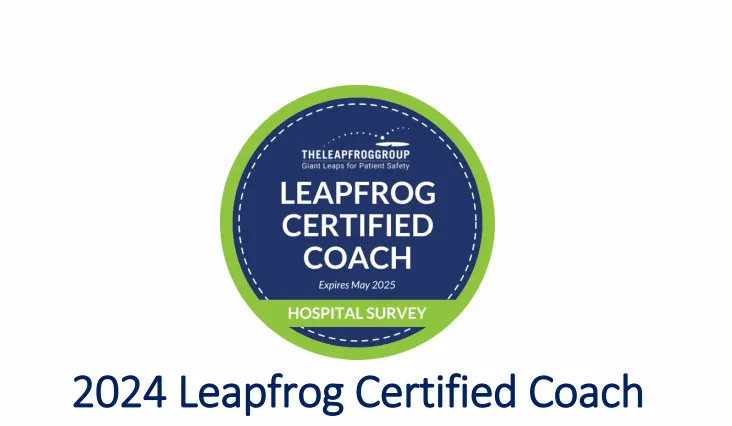Empowering Healthcare Professionals Through Expert-Led Training
Practical, evidence-based courses designed to enhance patient safety and reduce preventable harm.
Lifebeat Solutions – Your Partner in Patient Safety
Lifebeat Solutions provides healthcare professionals with self-paced, expert-led courses that deliver real-world strategies for safer patient care.
Lifebeat Solutions

Educational Resources Transforming Patient Safety
Lifebeat Solutions offers practical, evidence-based resources to ensure positive patient outcomes.
What We Offer
• Online Patient Safety Courses – Self-paced modules to educate healthcare providers.
• Professional Training Programs – Courses for healthcare teams to enhance their knowledge.
• Custom Safety Solutions – Tailored programs for healthcare organizations.
Why Lifebeat Solutions Works
• Proven Expertise – Developed by leading healthcare professionals.
• Actionable Insights – Practical steps providers can implement to ensure positive patient outcomes.
• Ongoing Support – Tools and resources for continued learning and improvement.
Who It’s For
• Healthcare Organizations – Teams aiming to educate and empower their staff.
• Educational Institutions – Integrating patient safety into curriculum.
Consulting

Personalized Consulting Solutions
Flexible, tiered consulting solutions designed to reduce patient harm, improve safety culture, and optimize healthcare outcomes.
How Consulting Works
• Initial Assessment & Roadmap – A deep dive into your hospital’s current safety practices to identify gaps and opportunities for improvement.
• Custom Training & Implementation – Hands-on support to implement safety protocols, backed by industry best practices.
• Ongoing Evaluation & Support – Continuous improvement strategies to ensure long-term success in patient safety.
Key Consulting Services
• Foundational Patient Safety Training – Essential workshops to build a culture of safety.
• Advanced Process Improvement – In-depth strategies for risk management and patient engagement.
• Family & Patient Partnership Programs – Empowering patients to take an active role in their care.
Who Can Benefit
• Hospitals & Healthcare Organizations – Looking to enhance safety protocols and compliance.
• Healthcare Leaders – Wanting expert guidance to drive meaningful change.
Speaking

Inspiring Healthcare Change Through Thought Leadership
Engaging keynote speeches and workshops to inspire and educate healthcare professionals to create safer healthcare systems.
Popular Speaking Topics
• Patient Advocacy: Your Role in Safer Healthcare – How individuals and organizations can champion safety.
• The Cost of Patient Harm – Addressing preventable medical errors and their financial impact.
• Healthcare Leadership for the Future – Creating a sustainable culture of safety and transparency.
Event Formats Available
• Keynote Presentations – Engaging, evidence-based speeches for large audiences.
• Panel Discussions – Interactive Q&A with industry experts.
• Workshops & Training Sessions – Hands-on learning for healthcare professionals.
Ideal Audiences
• Hospitals & Healthcare Systems – Leadership teams seeking actionable insights.
• Medical Associations & Conferences – Professionals focused on improving patient safety.
• Educational Institutions – Training the next generation of healthcare providers.
Every Life Matters
A Personal Mission
Dr. Julie’s passion for patient safety stems from personal experiences and decades of frontline healthcare work. She witnessed firsthand how small oversights in care can lead to life-altering consequences, inspiring her mission to educate, advocate, and empower. Her goal? To help hospitals reduce preventable harm and equip patients with the confidence to navigate their healthcare journey effectively.
Dedicated to Transforming Patient Safety and Healthcare Education
About Dr. Julie Siemers
With over 40 years of experience in nursing, patient advocacy, and healthcare leadership, Dr. Julie Siemers is a nationally recognized expert dedicated to making healthcare safer for everyone. From her extensive background in ICU, trauma, and flight nursing to her leadership roles in healthcare education, Dr. Julie has been a driving force in empowering both patients and healthcare professionals to achieve better outcomes.
Doctor of Nursing Practice (DNP) – Touro University, Nevada
Former ICU and Trauma Nurse – Specialized in critical care and patient advocacy
Published Author – Surviving Your Hospital Stay, a must-read guide for patients and families

What is LifeBeat Solutions?
Lifebeat Solutions is an innovative platform designed to equip healthcare professionals with the education and resources needed to navigate the healthcare system confidently. Our mission is to reduce preventable harm by providing actionable strategies and expert insights.
Expert-Driven Content: Developed by Dr. Julie Siemers, a leading voice in patient safety.
Real-World Application: Practical tools that empower healthcare professionals to advocate for their patients care.
Proven Results: Helping healthcare organizations improve outcomes and enhance patient satisfaction.
Surviving Your Hospital Stay
In "Surviving Your Hospital Stay - A Nurse Educator's Guide to Staying Safe and Living to Tell About It," author and nurse educator Dr. Julie Siemers, DNP, MSN, RN equips you with the essential knowledge and tools to navigate the complex healthcare system and ensure the safety and well-being of your loved ones.
This indispensable guide empowers families to become advocates and protectors, shedding light on potential pitfalls that can jeopardize patient care. From unraveling the mysteries of medical errors to asserting your rights as a healthcare consumer, this book provides a solid foundation for active participation in your healthcare journey.
Join the Movement
Dr. Julie Siemers is committed to creating a culture of patient safety through education and advocacy. Whether through consulting, speaking, or Lifebeat Solutions, she is here to guide patients and healthcare professionals toward better outcomes.
FOLLOW US

POWERED BY

